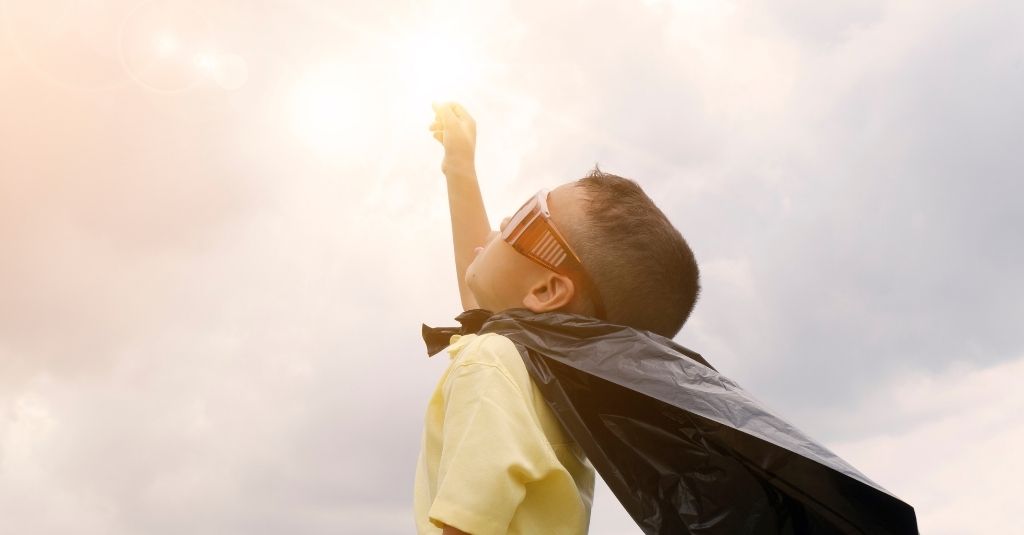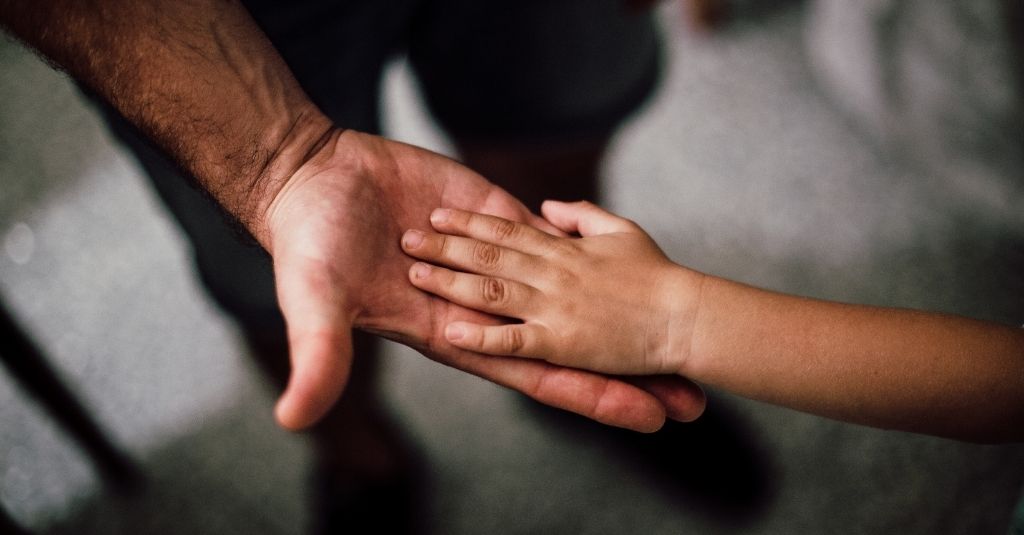Help my kids are always angry, obstinate and they’re getting on my nerves?
Why do children act up when we, as parents, are stressed?
I used to think the challenging ‘two’s’ would only last a short time. Wrong! I had no idea that one day there would be COVID! Everyone has their own parenting advice. I intend to provide awareness, be curious.
Children mirror their caregivers. Their sense of safety, feeling calm, self-value/self-esteem and inner peace come from the environment they are experiencing. Children who feel listened to, comforted when hurt or afraid, see adults who are loving and caring to each other, are more likely to develop good coping skills and a strong sense of self-esteem. These skills help them over their lifetime in dealing with the stress, disappointments and challenges.
However, children who grow up in home environments where there is violence, absent parents/caregivers, yelling and screaming, will create their own survivor behaviours to survive. These survivors’ behaviours will be carried on into their adult life, for the most part, are not always healthy behaviours in the grown-up world. Our implicit memory of early life has a profound impact on our adult life and how we parent. It is a learning process in recognizing our own survivor behaviours, first awareness and then understanding we can change them to more productive patterns. The same goes for our children.
Believe it or not so much of what happens in our lives today and how we react stems from our childhood experiences. I listen to a fantastic podcast by Dr. Gabor Matte who speaks about the impact of our childhood traumas and experiences and how we value ourselves and cope in the world of today. Dr. Gabor Matte gave some excellent insight into how our behaviours of today are linked to our childhood. It made me think about my own history, and curious about those around us. For example, do you ever wonder why people have addiction issues? Any type of addiction, like with alcohol and drugs, sex, food, overworking or other avoidance behaviours such as scrolling through Instagram, Facebook, people pleasers? For me, I like to be curious.
Everyone is doing the best they can with the tools they have at the time. The good news is we can change with awareness and knowledge.
Our future is defined by our past experiences as children and young adults. Think about your own childhood. Different events that may have been significant or traumatic. A new sibling, divorce, death, bullying, how did you feel, what did you think? How did you respond? Looking back from today I can see how I cope today is completely different than as a child or young adult. (The difference is the tools and strategies in my self-care tool kit.)
I can remember the specific time in my life between 14 and 15 years of age when I made a conscious choice that I wanted people to like me, to feel valued. This meant to change who I was for each person. In other words, I became a people pleaser, the disease to please incapable of setting boundaries.
Over the years this became a big problem as an adult. Those coping, survivor skills did not work in the adult world such as having to make decisions on important issues in relationships and the workplace. Not having any boundaries in my personal and professional life made it incredibly difficult to feel and be happy.
Years of workplace bullying sexual harassment took a toll and it seemed like my baby daughter would act up every time I had a ‘bad day’! Yes, I was frustrated and yes I yelled. That was not helpful at all for both of us. With awareness and thankfully I went for therapy, And with professional help changed my ability with listening and communication skills, and learned to understand in both my personal and professional life. Setting boundaries is a sign of self-compassion, not selfishness. There is a difference between being kind and a doormat. There is a difference between having a healthy respectful, loving conversation and judging, pointing fingers with criticism. This includes dealing with our children.
Children don’t have the language skills to communicate, their fears, anxiety, their stress levels and often they act out as confrontational, saying no and rebellious which of course drives parents crazy. Anger sets in the conversation, hurtful words then guilt, shame and emotional pain. No one wins.
We have to accept that we are dealing with unprecedented times, the goal post, finish line of COVID keeps getting moved which affects our stress levels and ripples into our children’s lives. We cannot separate our own stress and the stress that our children feel from us as adults.
The last year of living out of the Covid Cloud has put tremendous emotional, financial, and environmental stress on everyone. As adults, we can understand the importance of isolation and the safety protocols to keep us safe and healthy. However, children feed off our anxiety and fears. They may not have the ability to express their inner fears and deep emotions that they are trying to navigate under the Covid cloud.
Ask yourself how your child is behaving this year as compared to the regular school year. From SickKids research on the Covid pandemic and impact on the mental health of children:
Balancing risk of COVID-19 infection with mental health deterioration
One concerning finding for the study team was the significant proportion of otherwise healthy school-aged children who experienced deterioration in a number of mental health domains, including depression (37.6 per cent), anxiety (38.7 per cent), irritability (40.5 per cent) and attention span (40.8 per cent).
The researchers argue that the strong association of stress from social isolation with mental health deterioration points to the importance of in-person school, recreation, social activities and milestone events.
The idea is to be mindful of not only your own emotions, expectations, and what you’re listening to, watching, discussing every day on the news, but also how your children, interpretations are reacting. We are all unique and if you have more than one child each of them will be reacting and responding in their own way that fits with who they are and their ability to speak up and share their feelings.

“Mostly worse, occasionally better”
The research team surveyed more than 1,000 parents of children and youth aged two to 18 years old, and nearly 350 youth between 10 and 18 years old, from April to June of 2020. Across six domains of mental health – depression, anxiety, irritability, attention span, hyperactivity, and obsessions/compulsions – 70.2 per cent of school-aged children (six to 18 years old) and 66.1 per cent of preschool-aged children (two to five years old) reported deterioration in at least one domain. A smaller proportion, 19.5 per cent of school-aged children and 31.5 per cent of preschool-aged children, reported improvement in at least one domain.
“We found that overall, children were faring mostly worse, and occasionally better, compared to their pre-pandemic selves,” says Dr. Daphne Korczak, Child and Adolescent Psychiatrist at SickKids and Principal Investigator of the study. “We also found that the mental health impacts of the pandemic were greater for school-aged children during the first lockdown, underscoring the importance of in-class learning and extracurricular activities for children.
Have a conversation, be a role model for them, set up times every day to discuss how their day went at school and with friends. Ask questions about their feelings, fears and anxieties. Be willing to listen and not judge, their feelings are feelings and they don’t have to make sense to us as adults. Focus on the positive, discuss the importance of safety protocol without making it sound terrifying. Not everyone has effective coping or communication skills. It can be learned at any time in life the idea is awareness. From The WHO there are links for support and suggestions to help
STAY CALM, LISTEN, AND OFFER REASSURANCE

MONITOR TELEVISION VIEWING AND SOCIAL MEDIA
Be aware that little ears and eyes are watching and paying attention to how you react and respond. Set them up for feeling safe and secure. Positive active distraction can help shift from anxiety to having fun.
TAKE TIME TO TALK
KEEP EXPLANATIONS AGE-APPROPRIATE
BE HONEST AND ACCURATE
STAY CONNECTED TO SCHOOL
KNOW THE SYMPTOMS OF COVID-19
MODEL BASIC HYGIENE AND HEALTHY LIFESTYLE PRACTICES
Our children are the future. Their mental health is incredibly important for future happiness and success. It is a no-brainer to understand stressed/anxious/unhappy children do not learn as well as if they were feeling secure, safe and valued. Remember your own childhood what worked and what did not. With awareness, we can change ourselves and how we parent.
The article Psychology Today and the work by Dr. Beth Cunningham shares insight into the mental health impact on our children.
COVID-19 has brought about many dramatic life changes, especially in the lives of children. In this interview, Dr. Beth Cunningham shares insight on how these difficult circumstances may be affecting the mental health of children and how parents can be aware and take charge of best practices to help them thrive.
We are all in this together. It looks and feels different for each of us, those with small school-aged children the added stress of homeschooling and trying to navigate the changes with COVID outbreaks. Keep the conversations going on how they are coping, use age-appropriate language, focus on the positive, keep the safety protocols in place and help them create positive healthy coping self-care skills. We are only as limited as our imagination.
Awareness in how you are feeling and taking the time to self-care, remain calm look for teaching opportunities with your family. Be mindful of your own triggers and be curious about your own past what works and what may not be effective as an adult. Life is all about learning. Never give up and never give up on your children. They are the future and deserve to feel safe, heard and valued.
Most important if you lose your temper, try to avoid shaming and guilt as we all try to get to the other side of COVID. Remember everyone is doing the best they can with the tools they have at the time, the knowledge and understanding.
